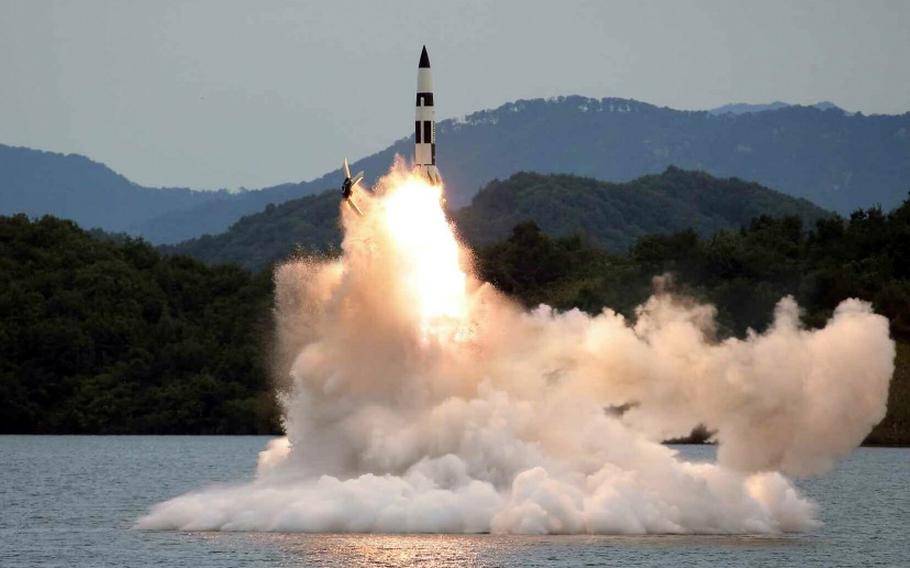
North Korea launches a missile from a submarine in this image released by the state-run Korean Central News Agency on Oct. 10, 2022. (KCNA)
TOKYO — Members of the Japanese government questioned how effective their country’s early warning system is after it provided flawed messaging when North Korea launched a ballistic missile over Japan earlier this month.
An alert was issued to Hokkaido and Aomori prefecture in northern Japan after the launch Oct. 4, Prime Minister Fumio Kishida said in the Diet’s upper house three days later. But the system caused confusion by also broadcasting an unnecessary alert to islands near Tokyo, he said.
Kishida said he takes the issue “seriously” and that the system has already been fixed.
“We will make efforts in preventative measures, so that this will not happen in the future,” he said.
The J-Alert early warning system sends out emergency messages and disseminates emergency information in the event of a missile launch, earthquake, tsunami or other event.
It sent out a first alert to Hokkaido and to nine towns and villages on islands not far from Tokyo at 7:27 a.m. Oct. 4, urging people to take shelter. The alert mistakenly included Tokyo because data on where to send warnings was not erased after it was used in a previous drill, Yomiuri Shimbun reported Oct. 5.
The newspaper reported that the alert was broadcast over loudspeakers on the islands and some schools delayed their classes.
Aomori prefecture, where the missile passed over, was not warned until a second message went out at 7:29 a.m., when the missile had already gone by. A message that the missile had passed over Japan was sent out 13 minutes later at 7:42 a.m.
“It’s hard to secure the time to evacuate with the current J-Alert,” Shun Otokita of the Japan Innovation Party said during a meeting of the upper house Committee on Foreign Affairs and Defense on Thursday.
“There are many people who are concerned that the system protects the lives and property of the citizens,” he said.
A number of Liberal Democratic Party members suggested improving J-Alert during the ruling party’s defense committee meeting on Wednesday, Mainichi Shimbun reported that day.
The alert system issued a “meaningless” message after the missile passed over Aomori prefecture, legislators said, according to the newspaper.
Chief Cabinet Secretary Hirokazu Matsuno at a news conference Wednesday said the Japanese government is considering a survey asking people’s thoughts on the early warning system and how they reacted after they received the latest message.
A similar survey five years ago found that only about 5% of the people actually evacuated, Matsuno said. More than half said they did not evacuate or thought that they did not have to evacuate, he said, according to a TV Asahi report on Wednesday.